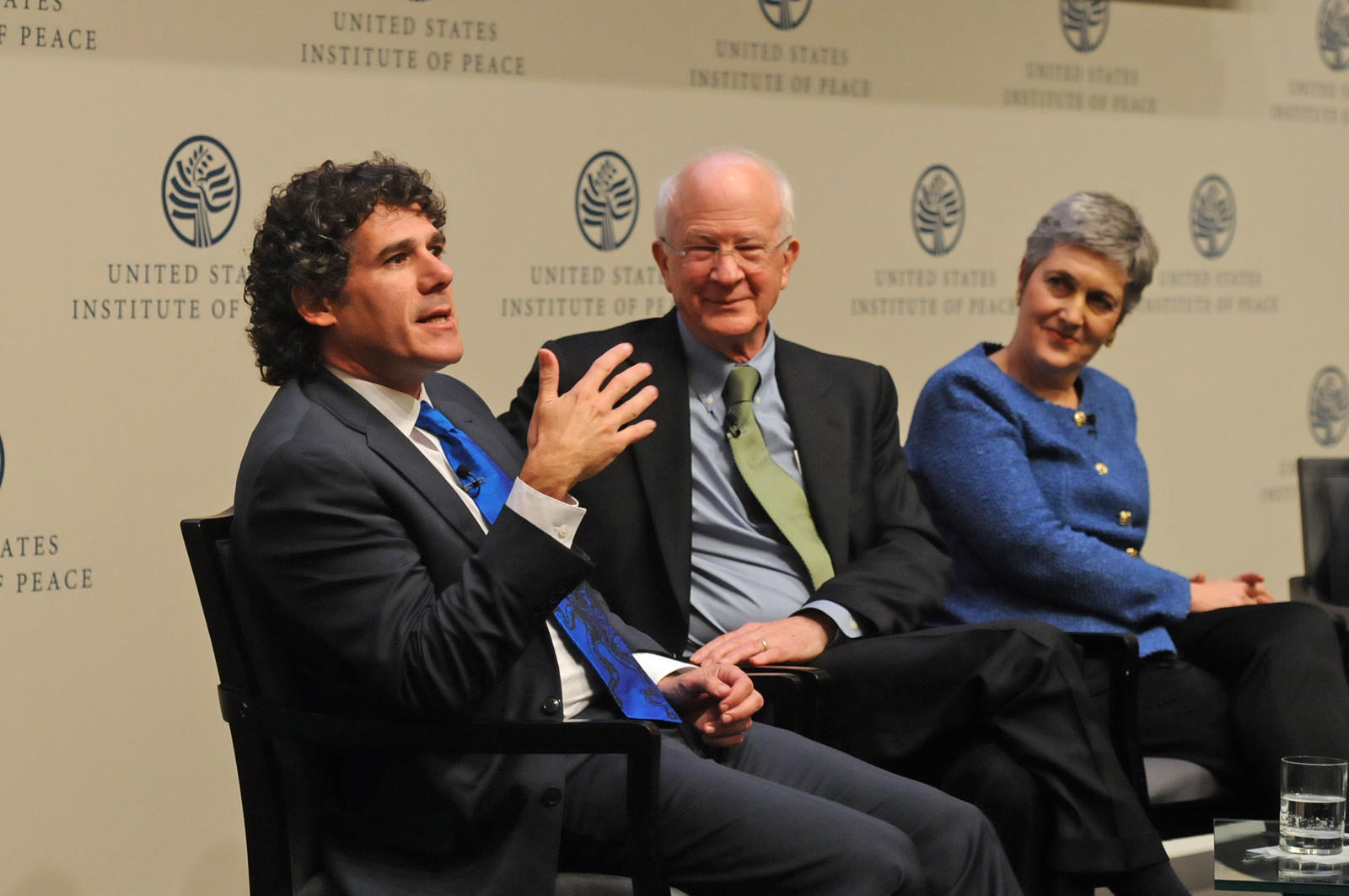Managing Conflict in a World Adrift
The recent eruptions of violence in the Middle East, parts of Africa and Eastern Europe illustrate the high hurdles of conflict management amid rapidly shifting power dynamics. On February 11, USIP held a discussion on how to address violent conflict in an era of increasing diffusion of power from central institutions to a range of smaller units.

Recent summits in Asia such as the Brisbane, Australia, G-20 gathering and the Beijing meeting of Presidents Barack Obama and Xi Jinping suggest that leading nations have strengthened the global system’s ability to address vital international issues such as trade and environment. Yet, events in Eastern Europe, Russia, Hong Kong, the Middle East, and parts of Africa, suggest that global governance may not be equipped to deal with all of today’s sources of conflict and that the international system is sliding toward chaos.
Pamela Aall, senior fellow at Centre for International Governance Innovation (CIGI) and senior advisor for conflict prevention and management at the United States Institute of Peace (USIP), led a lively and thought-provoking conversation examining these forces and potential approaches with one of her co-editors and two editors and contributing authors of a new book, Managing Conflict in a World Adrift co-published by USIP and CIGI. The volume is the fourth in a landmark series by Chester A. Crocker, Fen Osler Hampson, and Pamela Aall.
Keynote
- Rafe Sagarin
University of Arizona
Panel Discussion
- Chester A. Crocker
Georgetown University; Centre for International Governance Innovation - Sheldon Himelfarb
PeaceTech Lab - Ellen Laipson
The Stimson Center - Pamela Aall, Moderator
Centre for International Governance Innovation & U.S. Institute of Peace
Q & A 4:00-5:00 PM
Reception



